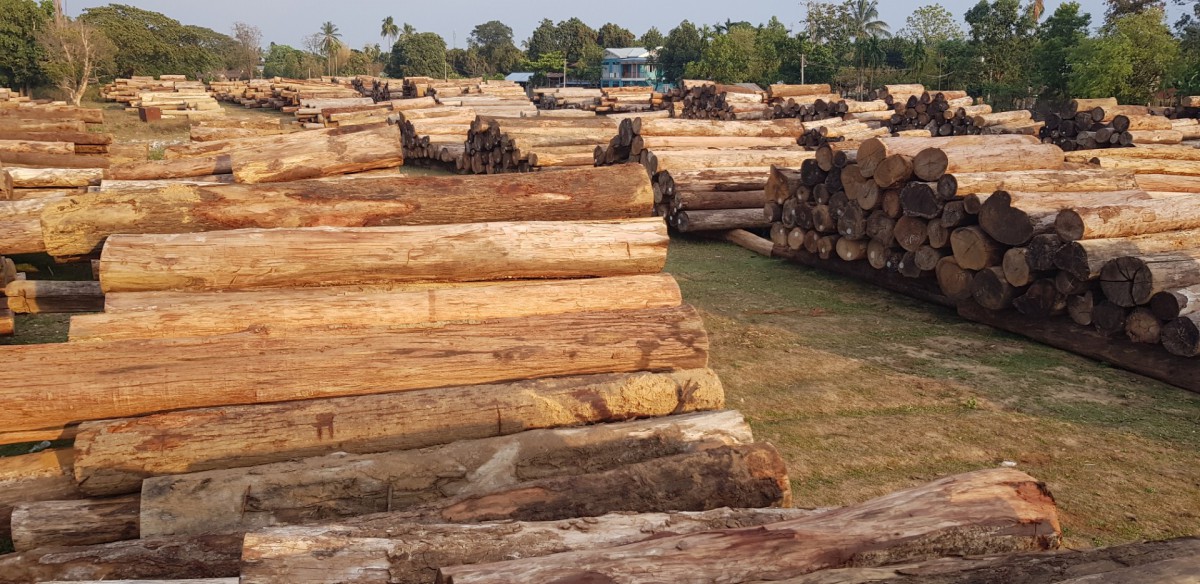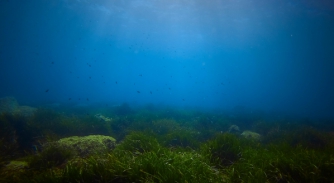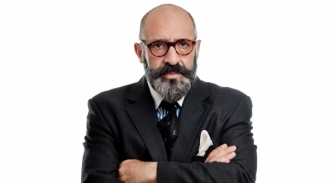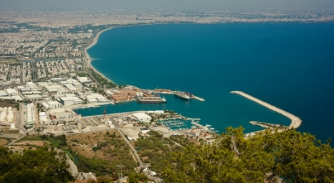Oceanco settles teak court case
The shipyard’s unintentional breach of the EUTR is a clear indication of the challenges we face with an increasingly convoluted supply chain…
 Image Credit: Environmental Investigation Agency
Image Credit: Environmental Investigation Agency
Oceanco has been fined €150,000 by the Netherlands Public Prosecution Service for violating the European Timber Regulation (EUTR) through its alleged use of Myanmar teak. Despite its best efforts, the shipyard admitted to not complying with the EUTR, albeit unintentionally.
This case is particularly interesting, especially as teak sourcing and prospective alternatives become a greater focus of our discussions. Oceanco’s charge, paired with last week's Sunseeker International case, shows the necessity for change.
The issues surrounding the use of teak in an increasingly murky marketplace marred by middlemen trying to make a quick profit are becoming strikingly evident. But there are already signs that we are moving in the right direction.
Put simply, ensuring compliance within global supply chains and sourcing materials ethically and legally is becoming harder than ever. The EUTR prohibits the import of illegally logged timber into the European Union and requires companies to conduct due diligence to verify the legal origin of the wood they use.
In this case, Oceanco was found to have breached the regulation by using teak furniture and interior finishings allegedly made from Myanmar teak aboard 127-metre Koru.
Court documents revealed that the teak used for Koru’s deck was supplied by a German timber merchant, Alfred Neumann. As the first entity to place the teak on the European market, the German trader was responsible for conducting due diligence to ensure the legality of the wood. This includes verifying its origin and ensuring it was not illegally logged.
The Dutch authorities’ investigation found indications that the German trader may not have fulfilled these due diligence requirements. However, Oceanco was not the first importer and provided all the necessary documentation for this material, so it was therefore not held liable. German authorities have been informed and may launch their own investigation into the trader’s actions.
The second issue, however, concerns teak used in furniture and interior finishings, which was sourced from an unnamed Turkish firm. In this instance, Oceanco was the first party to place the timber on the European market but was unable to conclusively verify whether the wood had been legally or illegally harvested. This lack of traceability, rather than confirmed illegal sourcing, constitutes a breach of the EUTR.
While Oceanco acknowledged its failure to comply with the regulation, it maintains that the violation was unintentional, pointing to its 2019 decision to stop using Myanmar teak in new projects. The order for Koru, however, predated this policy change. Oceanco also cooperated fully with authorities throughout the investigation, further demonstrating its commitment to transparency.
The Oceanco case reflects the broader challenges shipyards and the wider market face today. Supply chains involving multiple intermediaries are becoming increasingly convoluted, perhaps purposefully so to obscure the origin of materials. Middlemen in countries like Turkey, Singapore and Thailand often act as conduits for Myanmar teak, further complicating traceability efforts.
The recent settlement follows similar actions. The Sunseeker case in the UK also highlights systemic failures in due diligence within the industry and indicates an urgent need for the sector to adopt more rigorous practices.
There is opportunity in crisis, however, and the industry is ripe for change, with companies and entrepreneurs becoming more focused on making these instances a thing of the past. Emerging technologies, such as blockchain for supply-chain transparency and sustainable alternatives to teak, offer pathways for the industry to evolve. Firms that are truly committed to adopting ethical practices can lead the way in setting new standards that ensure compliance, protect the environment and show the industry in a positive light for its innovation.
As we face more scrutiny, instances like this should serve as reminders of the importance of transparency and accountability. With stricter regulations on the horizon and growing consumer awareness, the industry must adapt. The upcoming Superyacht Report: New Build Focus will explore practical alternatives to teak and how the sector can embrace innovation to chart a more sustainable and ethical future.
Profile links
NEW: Sign up for SuperyachtNewsweek!
Get the latest weekly news, in-depth reports, intelligence, and strategic insights, delivered directly from The Superyacht Group's editors and market analysts.
Stay at the forefront of the superyacht industry with SuperyachtNewsweek
Click here to become part of The Superyacht Group community, and join us in our mission to make this industry accessible to all, and prosperous for the long-term. We are offering access to the superyacht industry’s most comprehensive and longstanding archive of business-critical information, as well as a comprehensive, real-time superyacht fleet database, for just £10 per month, because we are One Industry with One Mission. Sign up here.
Related news

French court fines two captains for Posidonia destruction
The latest adjudication from the Marseille maritime court should serve as a clear example of what will happen if captains anchor in restricted zones
Crew
-environmental-investigation-agency-(eia).jpg)
Sunseeker sentenced for ‘blood’ teak
The British boatbuilder has been fined over £350,000 in a landmark case in the UK courts for importing teak from Myanmar
Crew

Having the last word
On his return to superyacht law, John Leonida explores the market’s challenges and the hard truths yachting must embrace to find its place in the modern w
Opinion

How ESG is driving Turkish marinas
Kemal Altuğ Özgün and the CBC Law team discuss how ESG principles are driving sustainability and financial success for marinas
Crew

EU Court rejects plea for Meridian A
The 85-metre Lürssen will remain in the hands of Spanish authorities due to suspected ties to the Russian CEO of Rostec, Sergei Chemezov
Fleet
.jpg)
Navigating shipyard insolvency during superyacht builds
Wikborg Rein's Linda Roxburgh discusses safeguarding superyacht owners' interests if their shipyard faces financial instability mid-build
Owner
Related news
Sunseeker sentenced for ‘blood’ teak
5 months ago
Having the last word
5 months ago
How ESG is driving Turkish marinas
5 months ago
EU Court rejects plea for Meridian A
7 months ago
NEW: Sign up for
SuperyachtNewsweek!
Get the latest weekly news, in-depth reports, intelligence, and strategic insights, delivered directly from The Superyacht Group's editors and market analysts.
Stay at the forefront of the superyacht industry with SuperyachtNewsweek



